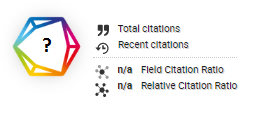PENGARUH MOTIVASI HEDONIS, UTILITARIAN DAN EXIGENCY TERHADAP PEMBELIAN PRODUK YANG DIMEDIASI OLEH KRISIS COVID-19
DOI:
https://doi.org/10.46984/sebatik.v26i1.1566Abstract
Adanya pandemi Covid-19 juga berdampak pada perubahan pola hidup masyarakat sehingga mengharuskan masyarakat untuk mampu beradaptasi dengan kebiasaan baru. Dalam skenario ini, kekhawatiran yang jelas muncul bagi perusahaan dan pemerintah yang memastikan bagaimana perilaku pembelian konsumen akan terpengaruh oleh krisis Covid-19. Tujuan dari penelitian ini adalah untuk memahami bagaimana motivasi dan perilaku pembelian konsumen di tengah krisis yang diakibatkan pandemi covid-19. , jenis penelitian ini merupakan penelitian kuantitatif-hipotesis testing research. Teknik pengambilan sampel yang digunakan adalah convenience sampling. Hasil penelitian terhadap konsumen di masa krisis menunjukkan bahwa variabel hedonic berpengaruh negatif dan tidak signifikan terhadap variabel Overall Covid – 19 Crisis Awerness , variabel Purchasing Categories basic needs product, dan variabel Purchasing Categories non basic needs product . Variabel utilitarian berpengaruh positif dan tidak signifikan terhadap variabel Overall Covid – 19 Crisis Awerness , variabel Purchasing Categories basic needs product , dan variabel Purchasing Categories non basic needs product. Variabel exigency berpengaruh positif dan signifikan terhadap variabel Overall Covid – 19 Crisis Awerness, variabel Purchasing Categories basic needs product, dan variabel Purchasing Categories non basic needs product .
References
Bajaj, D. N. et al. (2020) ‘Consumer motivations to create alternative consumption platforms’, Australasian Marketing Journal. Elsevier Ltd, 28(3), pp. 50–57. doi: 10.1016/j.ausmj.2020.06.001.
Belmouss, K. 2011. What marketing strategy to face the international financial crisis? N°4-5
Binder, C. (2020) ‘Coronavirus fears and macroeconomic expectations’, Review of Economics and Statistics, 102(4), pp. 721–730. doi: 10.1162/rest_a_00931.
Cai, H. et al. (2020) ‘Psychological impact and coping strategies of frontline medical staff in Hunan between January and March 2020 during the outbreak of coronavirus disease 2019 (COVID) in Hubei, China’, Medical Science Monitor, 26, pp. 1–16. doi: 10.12659/MSM.924171.
Duan, L. and Zhu, G. (2020) ‘Psychological interventions for people affected by the COVID-19 epidemic’, The Lancet Psychiatry. Elsevier Ltd, 7(4), pp. 300–302. doi: 10.1016/S2215-0366(20)30073-0.
Furner, C. P., Racherla, P. and Zhu, Z. (2012) ‘Uncertainty, trust and purchase intention based on online product reviews: An introduction to a multinational study’, International Journal of Networking and Virtual Organisations, 11(3–4), pp. 260–276. doi: 10.1504/IJNVO.2012.048909.
Hampson, D. P. and Mc Goldrick, P. J. (2013) ‘A typology of adaptive shopping patterns in recession’, Journal of Business Research. Elsevier Inc., 66(7), pp. 831–838. doi: 10.1016/j.jbusres.2011.06.008.
Hébel, P. and Mathé, T. 2017. Representation of consumption at the end of the economic crisis.
https://bisnis.tempo.co/read/1429918/bps-pertumbuhan-ekonomi-indonesia-2020-207-persen/full&view=ok
https://coronavirus.jhu.edu/map.html
https://www.bps.go.id/pressrelease/2021/02/05/1811/ekonomi-indonesia-2020-turun-sebesar-2-07-persen--c-to-c-.html
Jones, D. S. (2020) History in a Crisis- Lesson for Covid-19. 2nd edn, New England Journal of Medicine. 2nd edn. Nashville:Southwestern. Available at: nejm.org.
Katt, F. and Meixner, O. (2020) ‘Food waste prevention behavior in the context of hedonic and utilitarian shopping value’, Journal of Cleaner Production. Elsevier Ltd, 273, p. 122878. doi: 10.1016/j.jclepro.2020.122878.
Kim, R. B. and Chao, Y. (2019) ‘Effects of brand experience, brand image and brand trust on brand building process: The case of chinese millennial generation consumers’, Journal of International Studies, 12(3), pp. 9–21. doi: 10.14254/2071-8330.2019/12-3/1.
Kukar-Kinney, M., Scheinbaum, A. C. and Schaefers, T. (2016) ‘Compulsive buying in online daily deal settings: An investigation of motivations and contextual elements’, Journal of Business Research. Elsevier Inc., 69(2), pp. 691–699. doi: 10.1016/j.jbusres.2015.08.021.
López-Bueno, R. et al. (2020) ‘COVID-19 Confinement and Health Risk Behaviors in Spain’, Frontiers in Psychology, 11(June), pp. 1–10. doi: 10.3389/fpsyg.2020.01426.
Mukherjee, A. and Lee, S. Y. (2016) ‘Scarcity Appeals in Advertising: The Moderating Role of Expectation of Scarcity’, Journal of Advertising, 45(2), pp. 256–268. doi: 10.1080/00913367.2015.1130666.
Ozamiz-Etxebarria, N. et al. (2020) ‘Psychological Symptoms During the Two Stages of Lockdown in Response to the COVID-19 Outbreak: An Investigation in a Sample of Citizens in Northern Spain’, Frontiers in Psychology, 11. doi: 10.3389/fpsyg.2020.01491.
Qian, D. and Li, O. (2020) ‘The Relationship between Risk Event Involvement and Risk Perception during the COVID-19 Outbreak in China’, Applied Psychology: Health and Well-Being, 12(4), pp. 983–999. doi: 10.1111/aphw.12219.
Sekaran, U. and Bougie, R. (2013) ‘Research Methods for Business’. United Kingdom: John Wiley & Sons Ltd.
Sheth, J. (2020) ‘Impact of Covid-19 on consumer behavior: Will the old habits return or die?’, Journal of Business Research. Elsevier LTD, 117, pp. 280–283. doi: 10.1016/j.jbusres.2020.05.059.
Soudi, P. N. and Bouallala, F. (2020) ‘The Impact of Covid-19 Crisis on The Hedonic Purchase Behavior: Case of Care Products’, Journal of Research in Administrative Sciences, 9(2), pp. 40–44. doi: 10.47609/jras2020v9i2p7.
Vázquez-Martínez, U. J., Morales-Mediano, J. and Leal-Rodriguez, A. L. (2021) The Impact of the COVID-19 Crisis on Consumer Purchasing Motivation and Behavior, European Research on Management and Business Economics. Elsevier Espana, S.L. doi: 10.1016/j.iedeen.2021.100166.
Yang, Y. et al. (2020) ‘Consumption Trends During the COVID-19 Crisis: How Awe, Coping, and Social Norms Drive Utilitarian Purchases’, Frontiers in Psychology,11(October).doi:10.3389/fpsyg.2020.588580.
Downloads
Published
How to Cite
Issue
Section
License
Authors retain all their rights to the published works, such as (but not limited to) the following rights; Copyright and other proprietary rights relating to the article, such as patent rights, The right to use the substance of the article in own future works, including lectures and books, The right to reproduce the article for own purposes, The right to self-archive the article








